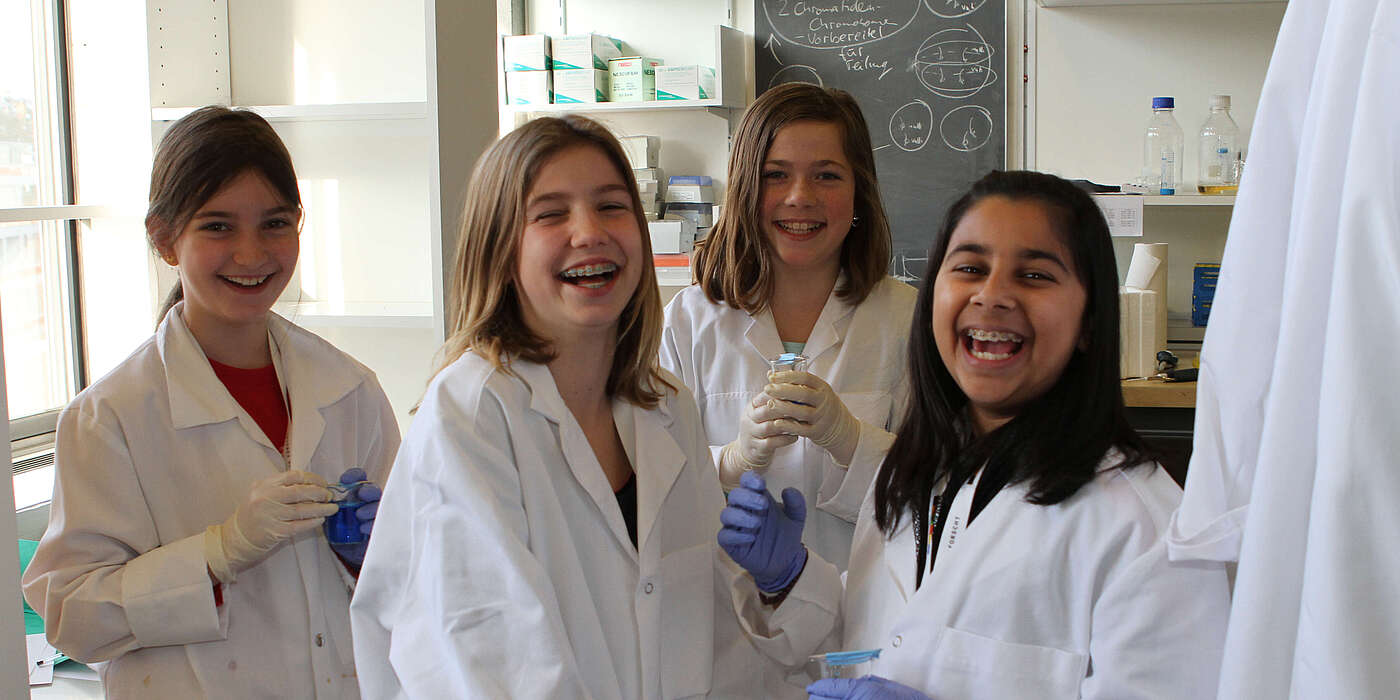Soon children's voices will fill the Biozentrum. Again this year, for the third time, school children will become young research scientists. Wearing white coats, armed with pipettes, pens and notebooks, they will eagerly flit around the corridors of the Biozentrum, carefully watching everything with curious eyes and asking many questions. As in the past years, the children have the opportunity to not only observe the activities but also to conduct their own experiments in three different research groups at the Biozentrum.
At the Biozentrum, three girls and three boys will each visit the research groups of Prof. Markus Affolter, Prof. Marek Basler and Prof. Timm Maier. In the group of Markus Affolter the children will observe how a zebrafish develops from a small egg. Furthermore, they can trace the formation of blood vessels in the fish and learn what can go wrong in this process. Marek Basler’s team focuses on tiny bacteria. The researchers will show the very young scientists how certain bacteria combat their competitors using a nanoscale spear gun. In the research group of Timm Maier, the children will learn everything about proteins. They will get deep insights into the structure and function of proteins, grow crystals and identify a chocolate thief based on his genetic material. A visit to the Nano Imaging Lab at the Swiss Nanoscience Institute is also planned: With Markus Dürrenberger and his team, the children will coat coins with gold and using the electron microscope, make the very tiny very large, from hair to almost invisible pollen.
A grand finish awaits the children on the last day of their study week. At the public final event, they will show their parents and family members, friends, classmates and teachers what they learned during the study week at the Biozentrum. In addition to the poster presentations, the "young scientists" also have the opportunity to present their projects to the public.
The kids@science study weeks are organized by the foundation “Schweizer Jugend forscht”. They aim to give children an insight into the fascinating world of science and technology, building an early awareness of these fields. For four days, the children, aged between 10 and 13 years, can look over the shoulder of research scientists at four Departments of the University and also carry out their own exciting experiments.
Contact: Communications, Katrin Bühler



